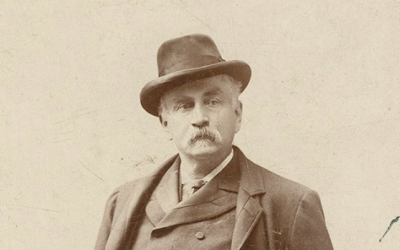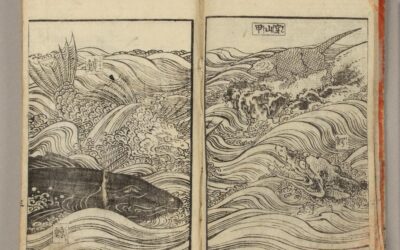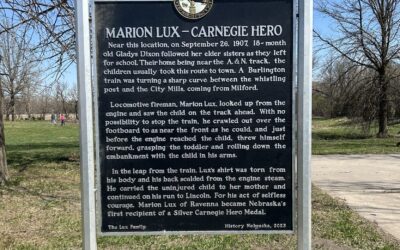
Advertisement for medicinal drops to relieve toothache, Lloyd Manufacturing Co., 1885. Courtesy National Library of Medicine
Cocaine was once touted for its painkilling properties, but by the early twentieth century concern was growing about the drug’s potential for addiction. Newspapers were full of lurid and tragic stories of “cocaine fiends.” A 1914 federal law banned it as an ingredient in over-the-counter patent medicines.
Before then, some states and cities began prosecuting pharmacists who sold cocaine. The Omaha Bee reported on one such local ‘war on drugs’ on June 12, 1907:
“The wanton murder of Anton Kaspar, supposedly by a cocaine fiend, and the multiplicity of minor crimes traceable to the drug habit have inspired City Prosecutor Daniel to an effort at checking the distressing increase of this dangerous traffic in which certain drug stores in the shadowy section of Omaha engage upon such large lines.
“A case in police court Wednesday prompted immediate action. Ed Bextel, proprietor of the drug store at Twelfth and Dodge streets, was arrested on a complaint sworn by Daniel Wednesday morning. Police court was continued until long after the usual hour in order that the druggist might be taken into court and arraigned immediately.
“The case which drove Prosecutor Daniel to take the action and Judge Crawford to prolong the court session was that of George Williams, who was arrested at 3 o’clock in the morning by Patrolman Lahey as a suspicious character. Williams told Judge Crawford his desire for the ‘coke’ was so great he was obliged to leave his home at 2606 Jefferson Street, South Omaha, and, as no cars were running, walk the six miles to Omaha in order to buy 5 cents’ worth of the stuff. He said he bought it at Bextel’s store.
“After the close of court Williams was given his empty ‘coke’ box and sent to Bextel’s store with two witnesses, who saw him hand the box over the counter with 10 cents and have it returned to him filled without a word being said. The same performance was gone through with at Frank W. Fogg’s store at Twelfth Street and Capitol Avenue and he will be included in the crusade against the evil in Omaha. Several attempts have been made in the past to have slaves of the drug turn witnesses, but none of them would jeopardize his chances of being provided when the desire should come on.”
(Posted 3/8/2023)




